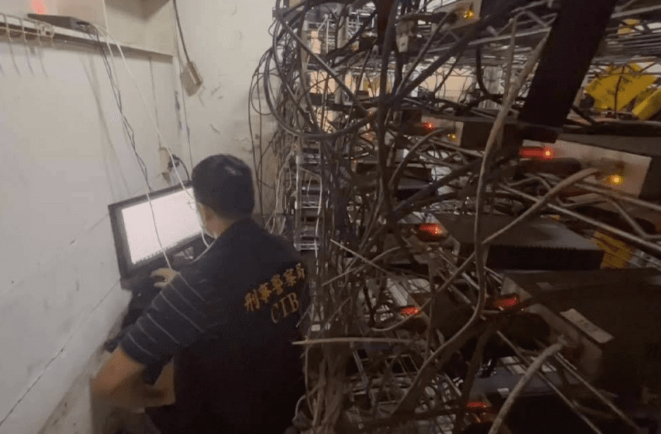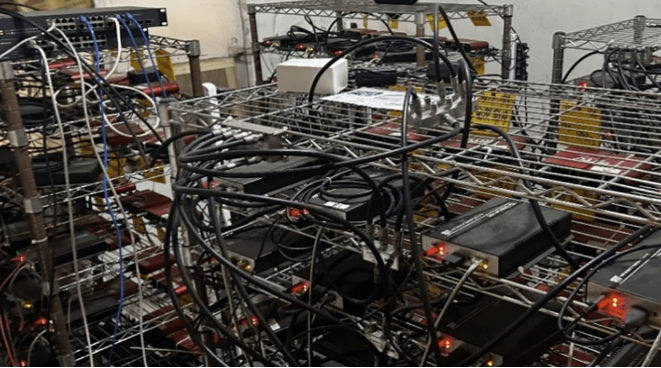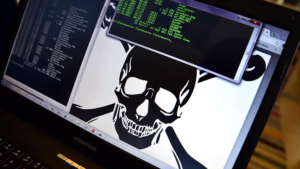In a major law enforcement action, Taiwan’s Criminal Investigation Bureau (CIB) has dismantled a large-scale pirate IPTV operation that had been illegally streaming content for more than two years. The operation, hidden within a house that appeared long abandoned, resulted in the seizure of over 279 pieces of equipment, including 72 set-top boxes, 72 video encoders, servers, networking gear, bank records, and mobile phones. Two suspects were arrested as part of the crackdown.
Disguised Operation Uncovered
Recent data from Italy’s Piracy Shield system reveals that pirate IPTV servers can operate from virtually anywhere, often remaining undetected for extended periods. Asia, particularly regions such as China, Hong Kong, and Taiwan, frequently appears in piracy-related reports, posing significant challenges for global copyright holders.
While enforcement actions within China are less frequent than desired by rightsholders, Taiwan has become known for more proactive raids, often benefiting international stakeholders as well.

Xtreme Codes Software Key to Investigation
The investigation into this pirate IPTV operation began when Taiwan’s CIB identified an app known as Qingtian TV or Sunny TV on online auction sites. This app, like many other pirated TV services, offered unauthorized live streams of content from legitimate broadcasters, bundled conveniently into a mobile application.
Central to the operation was the use of Xtreme Codes, a notorious software platform that facilitates the capture, encoding, and distribution of live TV streams for pirate IPTV services. The use of this software was instrumental in leading authorities to the operation’s activities, providing crucial evidence needed to shut it down.
The illegal content provided through Sunny TV included programming from major networks such as Taiwan’s Satellite Radio and Television Business Association, as well as members of Japan’s anti-piracy group CODA, which includes top stations like TBS, Fuji TV, NTV, and TV Asahi. Over a two-year period, the estimated value of the pirated content exceeded one billion Taiwan dollars (approximately US$31.2 million).
Following a thorough investigation, the case was turned over to the Taichung District Prosecutor’s Office, resulting in coordinated raids at locations in Taichung City and Yunlin County.
Pirate Operations Hidden in Plain Sight
One of the primary suspects, referred to by the CIB as Mr. Li, along with his accomplices, had rented a house with a facade that suggested it had been abandoned for years. This deceptive exterior allowed their illegal activities to go unnoticed for an extended period.
However, when authorities raided the property, they discovered a well-organized operation. The raid resulted in the confiscation of 72 set-top boxes, 72 signal encoders, servers, network switches, bank records, and mobile phones, totaling 279 pieces of evidence.

Breakdown of the Piracy Network
According to the CIB, Mr. Li, along with another suspect named Mr. Chen, were apprehended during the operation. Chen is believed to have played a significant role in selling illegal OTT (over-the-top) software through various online platforms, frequently switching accounts to avoid detection by law enforcement.
The CIB also mentioned two additional suspects, though their identities and specific roles remain undisclosed.
In addition, the CIB released a diagram outlining the operation’s structure, from the initial capture and encoding of live TV streams to their distribution to end users. The diagram notably includes Cloudflare, a company whose services have increasingly been found in connection with piracy operations, albeit often without direct involvement.
The public inclusion of Cloudflare in this case may be part of a broader strategy to apply pressure on service providers to take more decisive action against piracy, potentially shifting discussions into a more public and actionable arena.






